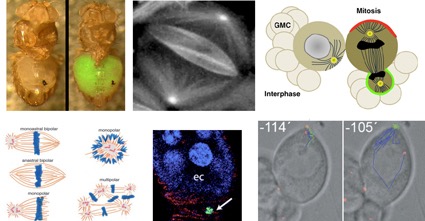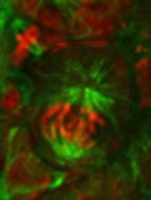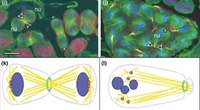We use Drosophila to investigate the molecular and cell biological mechanisms that drive cell proliferation and malignant growth.
Ongoing research lines include the following.
(1) Drosophila models of paediatric cancer . We are developing Drosophila models that recapitulate some critical traits of different types of paediatric cancer. Using these models we hope to be able to investigate the molecular bases of these diseases. We also expect some of this models to serve as platforms for drug screening.
(2) The molecular basis of sex-linked differences in cancer. For many cancer types susceptibility and mortality rate are significantly different in males than in females. Understanding the molecular basis of sex-linked differences in cancer incidence and survival may pave the way for gender-specific, more efficient therapeutic strategies. We are taking advantage of Drosophila tumours that present strong sex dimorphism to identify the molecular axes that drive such differences.
(3)The role of cancer-testis (a.k.a. cancer-germline) genes in somatic malignant growth. We have develop identified Drosophila mutants that provide exoperimental models of brain tumours in which malignant growth is concomitant with the ectopic expression of dozens of genes that under normal conditions are only expressed in the germline. Ectopic expression of germline genes is also common in human cancer. In our fly models we have identified some of these genes as essential for malignant growt in the larval brain. Remarkably, some of them are orthologs of human cancer-germline genes..



